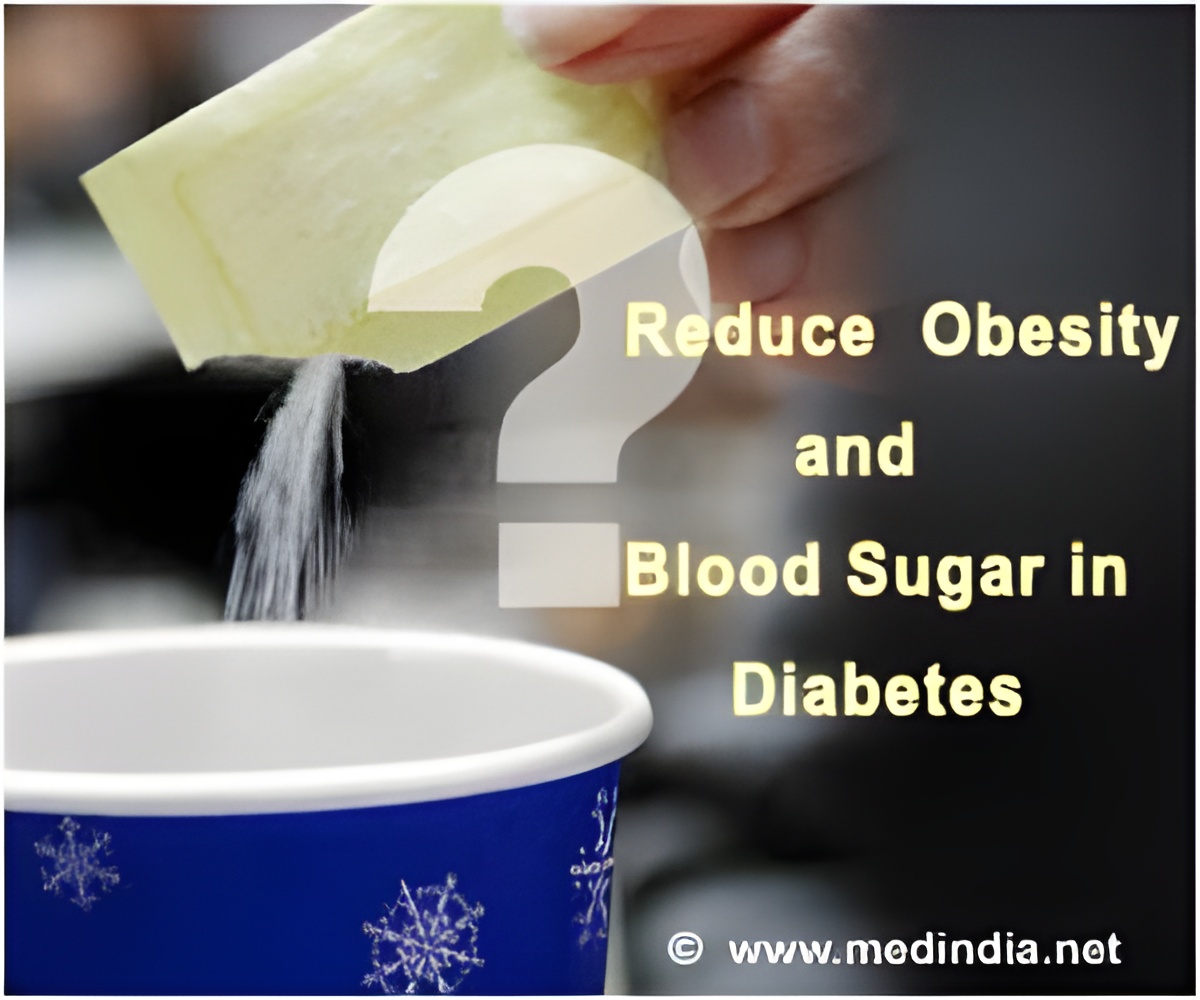More studies are required to establish the role of artificial sweeteners in controlling diabetes and reducing obesity.

A variety of sweeteners are available in the market. These include:
• Non caloric sweeteners like acesulfame-K, aspartame, cyclamate, saccharin and sucralose
• Sugar alcohols like hydrogenated starch hydrosylate, lycasin, maltitol and sorbitol. Sugar alcohols provide fewer calories as compared to saccharides, but they cause some digestive tract disturbances.
• Saccharides like fructooligosaccharides, fructose, glucose, high fructose corn syrup, honey, isomaltulose, maltose, sucromalt, sucrose, tagatose and trehalose. Fructooligosaccharides give half the amount of calories per gram compared to sucrose, fructose or glucose.
Which sweeteners could possibly help in controlling blood glucose? Do sweeteners play any role in reducing obesity, as they are claimed to be? Which sweeteners provide better health benefits? A review of published clinical trials evaluating the use of sweeteners in healthy people, diabetics and obese or overweight people was recently published.
Forty included trials studied the effect of sweeteners on 2-hour blood glucose. Fructose appeared to reduce 2-hour blood sugar as compared to glucose in diabetics. Studies comparing the effect of hypocaloric sweeteners to sucrose or high-fructose corn syrup were unable to reach any conclusions with regards to 2-hour blood glucose concentrations.
Two trials indicated that non-caloric sweeteners reduced total energy intake compared to sucrose by approximately 250- 500 kcal/day.
One trial indicated that body mass index is reduced in people taking non-caloric sweeteners compared to sucrose.
It is unclear whether any short-term benefits of non-caloric sweeteners will have any long-term impact on obesity. In addition, artificial sweeteners should be used with caution since some are associated with adverse effects. For example, high corn fructose syrup has been associated with hypertriglyceridemia (though this was not found in any of the studies included in the review). Some sweeteners have been associated with certain cancers in animal studies. Further and longer term studies are required to establish the benefits of artificial sweeteners in conditions like obesity.
Reference:
1. Natasha Wiebe et al. A systematic review on the effect of sweeteners on glycemic response and clinically relevant outcomes. BMC Medicine 2011, 9:123
Source-Medindia















